Conclave’s ending is memorable and a conversation starter. The film, directed by Edward Berger from a screenplay by Peter Straughan, is adapted from Robert Harris's novel of the same name. Conclave’s reviews have been extremely positive, with a high Rotten Tomatoes score and awards season chatter. The political thriller ends with the conclave having voted in a new pope — Cardinal Vincent Benitez — after a long, arduous process filled with revelations about intentions, ethics, and behavior. Cardinal Thomas Lawrence seems a bit disappointed he wasn’t chosen as pope despite having previously been uninterested in the position.
After Cardinal Benitez is revealed as the new pope to the conclave, but not yet to the public, Cardinal Lawrence visits him after being made aware of a procedure Benitez almost underwent. When prompted, Benitez reveals that he nearly had a hysterectomy, but decided against it because he wanted to value the person God made him. Cardinal Lawrence is astonished because he genuinely had no idea, but doesn’t say anything to the other cardinals about Benitez’s situation. Conclave ends with a white smoke signal revealing a new pope has finally been elected after multiple days of being sequestered.
Cardinal Benitez’s Conclave Twist Explained
Cardinal Benitez Almost Had A Hysterectomy
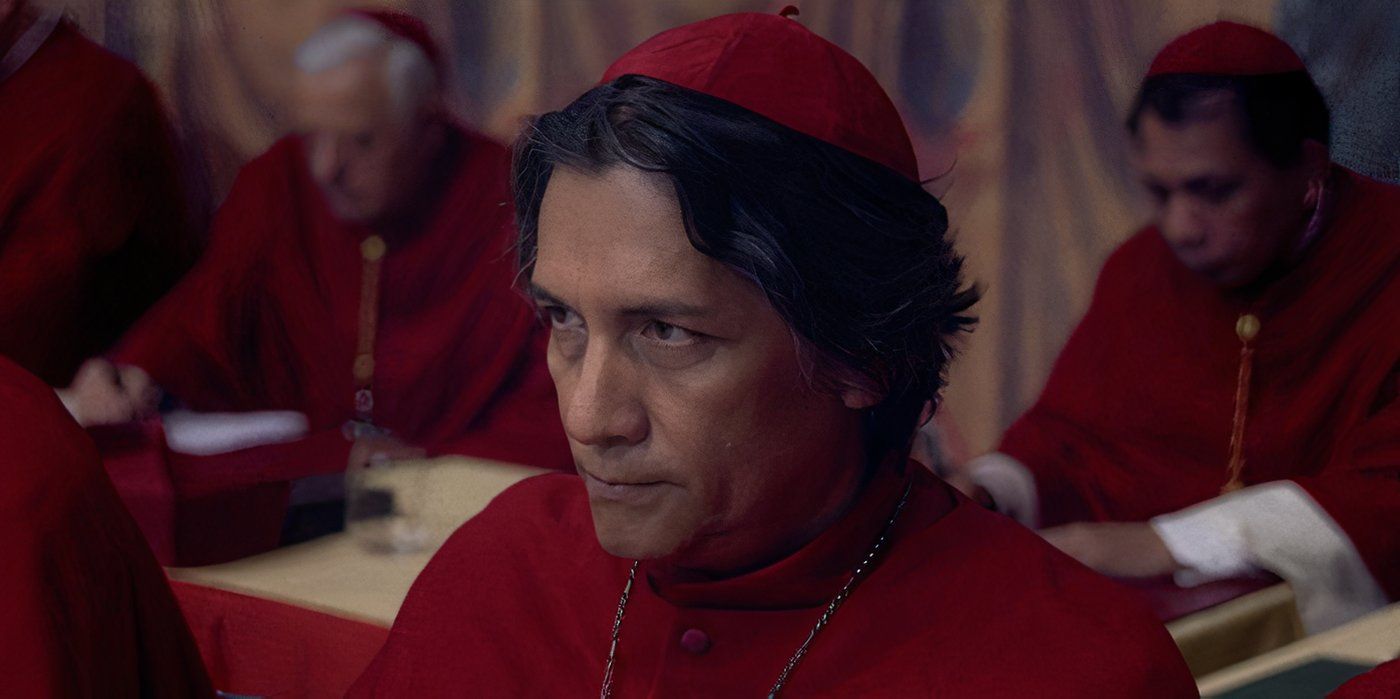
Benitez’s Conclave twist is meant to surprise, especially since the cardinal would now be the first pope to not have been born a male. Benitez is an intersex person who believed he was male well into adulthood. His gender was never questioned, and he was sent to seminary very early on in life. However, it wasn’t until he was injured in a car bomb while in Afghanistan that a doctor’s examination revealed the truth — Benitez had a uterus. Believing this disqualified him from his position, he offered to resign, but the pope instead arranged for Benitez to have a hysterectomy.
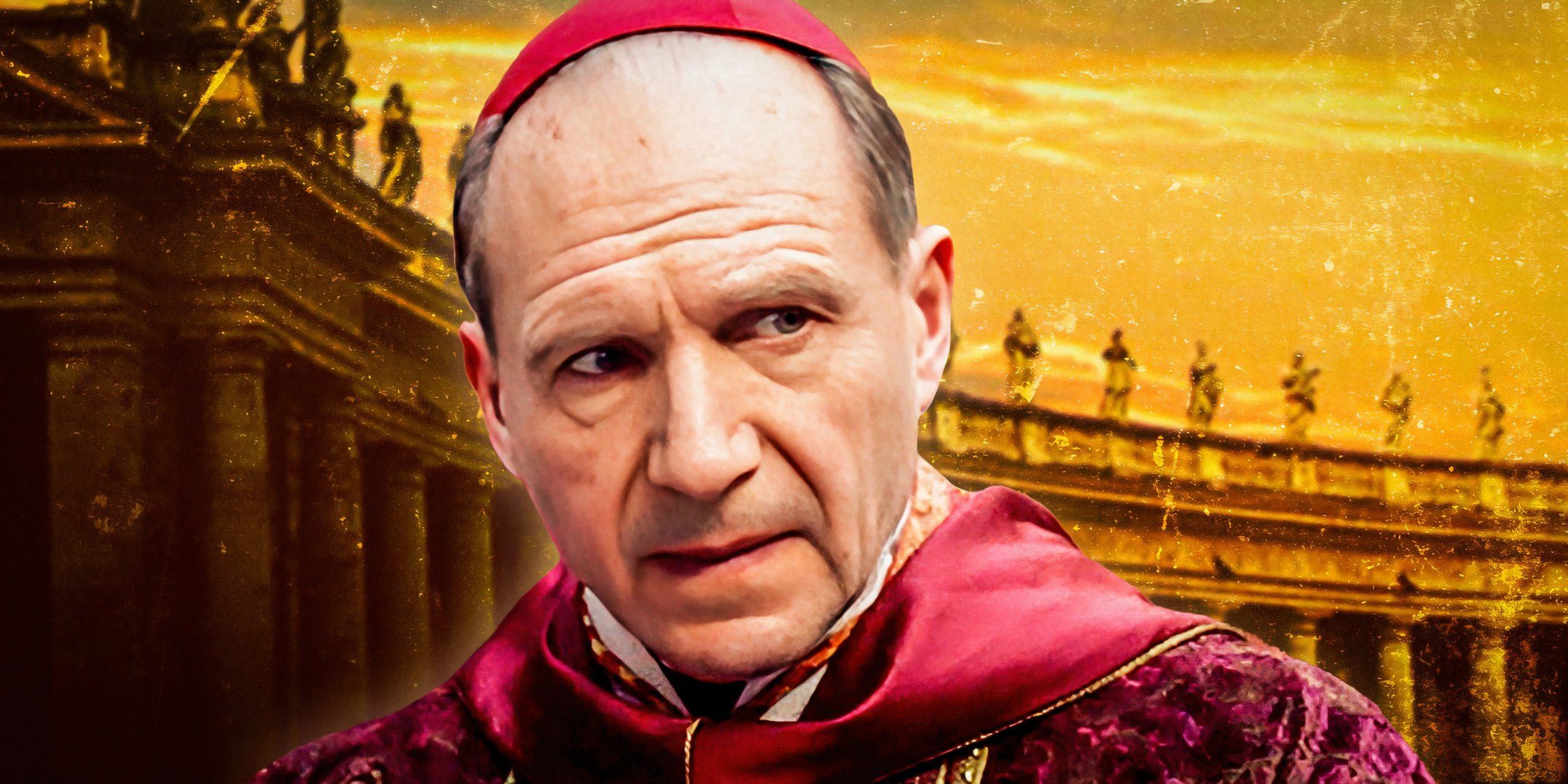
Related
Where To Watch Conclave: Showtimes & Streaming Status
Following rave reviews for Ralph Fiennes' pope thriller, here are the options for where to watch Conclave in theaters, on streaming, or on digital.
Cardinal Benitez ultimately decided against the hysterectomy, opting to remain as God created him. Benitez didn’t tell anyone about this, save for the pope and the doctor who examined him. His medical file was classified and he continued being a priest before the late pope made him cardinal. Benitez will likely continue keeping the fact he has a uterus a secret from the rest of the cardinals — at least for the time being. But now that Benitez is Pope, he may decide to reveal the truth to the rest of the cardinals, the Catholic Church, and the world.
Why Benitez Chooses The Name "Innocent" Explained By Conclave's Director
When Benitez shockingly wins the papal race and is elected, he chooses the name "Innocent", the latest in a long line of popes to follow that trend. The first was elected to the Holy See in 401, and is remembered in Catholic historical documents as committed to cementing the authority of the papacy. Given the issues of corruption rife in Conclave's background, it's a fitting name to choose.
Additionally, according to director Edward Berger, it is "a name of purity without any preconceptions," reflecting Benitez's contrast with the other candidates:
It’s a name of purity without any preconceptions. You see it in children—they have no bad experience, they’re theoretically only positive, only open towards others. They have no prejudices. They’re innocent. Then society conditions them to be a certain way, their parents, school, friends, and bad experiences leave trauma. So Benitez comes to us with absolute openness, and I think that’s what it means.
Why Lawrence Keeps Benitez’s Secret From The Other Cardinals
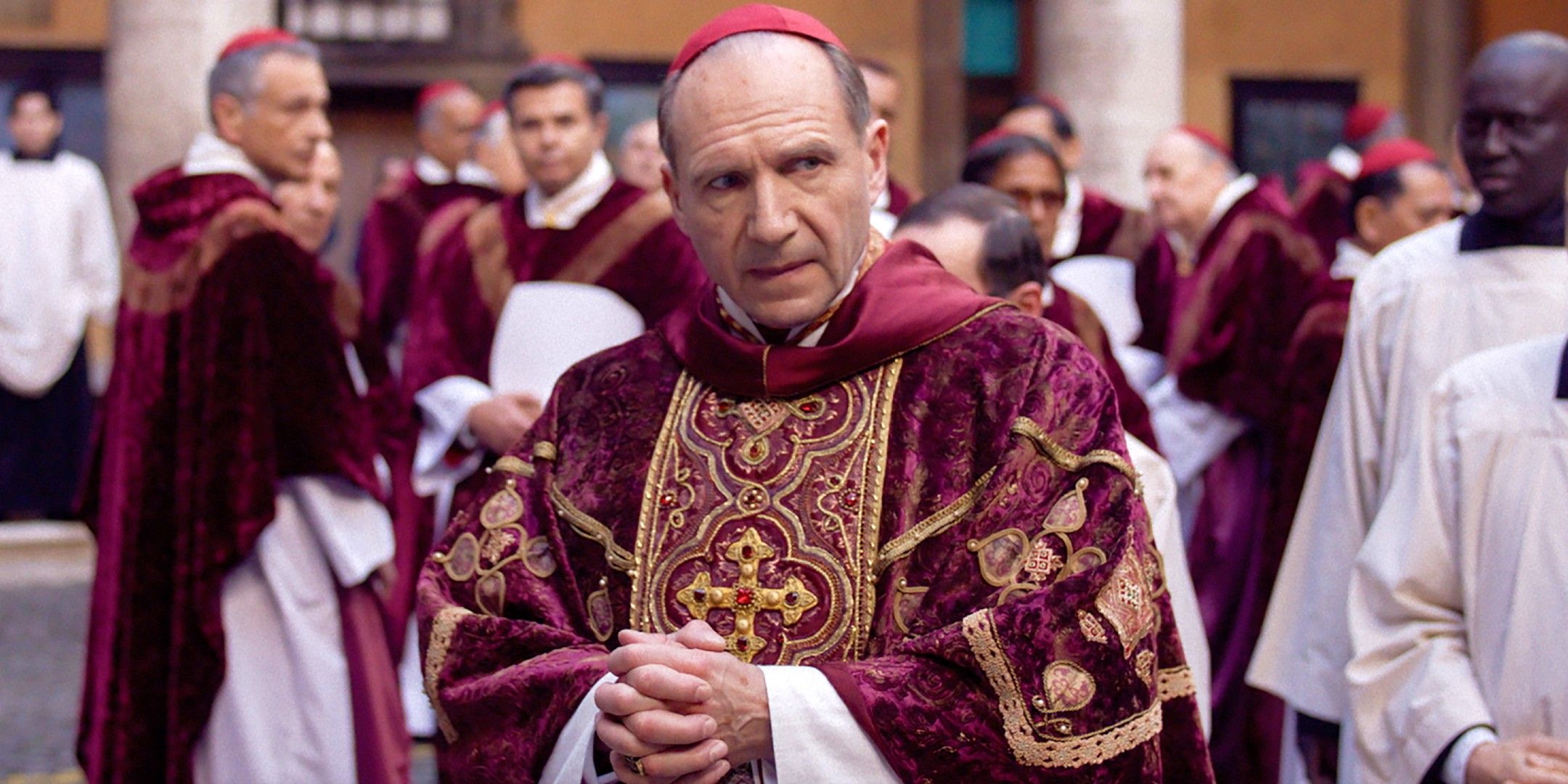
Conclave’s cast consists of eight primary cardinals and Isabella Rossellini’s Sister Agnes, who doesn’t have a say in the conclave at all. Throughout the film, Cardinal Lawrence discovers all of their secrets and keeps them in line so they can have a just election. Despite wanting to air out what the other cardinals are hiding, Cardinal Lawrence doesn’t reveal the truth of Cardinal Benitez’s situation. It’s likely because Benitez is already Pope when Lawrence learns about it. Lawrence also sees Benitez as being sincere in his faith, and outing Benitez to the other cardinals would feel like a betrayal.
Believing this disqualified him from his position, he offered to resign, but the Pope instead arranged for Benitez to have a hysterectomy.
It also isn’t Lawrence’s secret to tell, and telling it to the other cardinals wouldn’t change the outcome of the election. There’s also the fact that the other cardinals were dealing in blackmail and secrets that were otherwise sinister and harmful to their moral characters. Benitez being intersex was not a case of ethics, and it had the potential to change the Catholic Church positively. And if the late pope was fine with Benitez as is, then Lawrence likely was as well.
Director Berger revealed his own assessment of the movie's ending, explaining to Den Of Geek that Lawrence recognizes that the right person became Pope because of his purity of belief, in stark contrast with the other candidates. He spoke to Vanity Fair to also state that Lawrence's epiphany is also a deeper epiphany about the Pope's place in society that "revolutionizes his way of thinking". Here's how he broke the ending down to Den Of Geek:
I think in the end Ralph recognizes the right person becomes Pope. Because it is a person who is pure, who still believes… and I think that’s what it’s more about. To keep the purity, the innocence of your true belief. It doesn’t really matter whether you’re a cardinal or a filmmaker or journalist or an engineer.
This movie is about the oldest patriarchal institution in the world, representing many other patriarchal institutions in the world. And at the end of the movie, there’s a crack in that institution, a crack of perhaps femininity, ya? It’s a crack that a light can shine through, a guiding light for the future, perhaps. And the future is a world where maybe both can exist?
The Final Shot Of Conclave (& Its Turtles) Reveal A Deeper Meaning About The Future
Conclave's ending features imagery of turtles, and notably, the final shot sees Lawrence open a window, allowing light and life back into the Sistine Chapel now that the Pope has been elected. He hears three nuns laughing, and it's an important momoment. Star Ralph Fiennes told Today that the turtles symbolize "spiritual independence," while co-star Isabella Rossellini, who plays Sister Agnes, discussed the final shot of Lawrence hearing the nuns laughing:
Ralph Fiennes: They’re a charming little beautiful animal. Amphibious, and aren’t they sort of symbols of spiritual independence? I think maybe they are.
Isabella Rossellini: I think there is this sense of claustrophobia, because they are all inside Sistine Chapel. They are secluded, and then when you open up, there is not only the women and the laughter, but there is also the light, the sun, the air, and I think that was the contrast to that moment of great claustrophobia,
Ralph Fiennes: I think there is something in the fact that the claustrophobia is broken and we see three laughing women nuns, and I think that’s a wonderful gesture to end the film after you’ve been confined with all these men for two hours.
Conclave's director echoed Rossellini's point on the laughing nuns and Lawrence symbolically casting the windows open, and what it may mean for Benitez's reign as Pope:
Once that conclave is over, the shutters open, and [Lawrence] opens the window, and lets the air and the sun and life back in. And he hears that feminine laughter of those three nuns. In a way, it’s the future and it evokes a smile on him. It’s the promise of a more egalitarian tomorrow with a Pope who might offer some understanding for all people, no matter their gender or sex.
The idea that Benitez's ascension as Pope will bring a more hopeful future, precisely because of who he is is reflected in his own explanation for why he decided against having a hysterectomy:
“It seemed to me more of a sin to change His handiwork than to leave my body as it was. I am what God made me. Perhaps it is my difference that will make me more useful. I think again of your sermon. I know what it is to exist between the world’s certainties.”
The race to become Pope is one marked by conflict and extreme positions, and Benitez existing "between... certainties" suggests a more moderate, considered position. That is not only important for conflict resolution within the Church, but also speaks potentially to the more progressive stance the Church may adopt under Benitez, where issues that define the election debate like playing politics and homophobia should theoretically not exist.
How Realistic Benitez's Election As Pope Is, According To An Expert
Given Benitez's apparent shame at his "secret", and the fact that Lawrence chooses not to reveal it, the question of how such events would transpire within the real-life Church is particularly relevant. Papal expert David Gibson, Director of the Center on Religion and Culture at Fordham University, addressed the likelihood of an intersex pope, and offered his thoughts on the Church's evolving stance on gender and sexuality:
Yes, an intersex person could be elected pope, just as there have undoubtedly been gay men elected pope. It’s not clear what it would mean though, and I think that’s a real weakness in the film. Robert Harris, it seems, wanted to make a statement about gender and the Catholic Church, which is fine. But it is less a statement than a Rubik’s Cube.
Does the new pope identify as male or female? Does having characteristics of both sexes mean that they can’t be ordained, or become pope? Would such an election be invalid? These become angels-dancing-on-pinhead discussions that distract from the more important issues.
I was in Rome with a group of Fordham students in October for the global meeting of Catholic leaders, called a synod. During that time, Pope Francis met with a group of trans and intersex Catholics. It was a very powerful meeting. The pope’s affirmation of them as created by God with inherent dignity was extraordinarily moving. One of them, Nicole Santamaria, an intersex woman from El Salvador, wrote about her experience and to me, it’s a testimony more powerful than Conclave’s surprise ending.
Why Cardinal Lawrence’s Ambitions For Being Pope Changed
Cardinal Lawrence Never Saw Himself As Pope
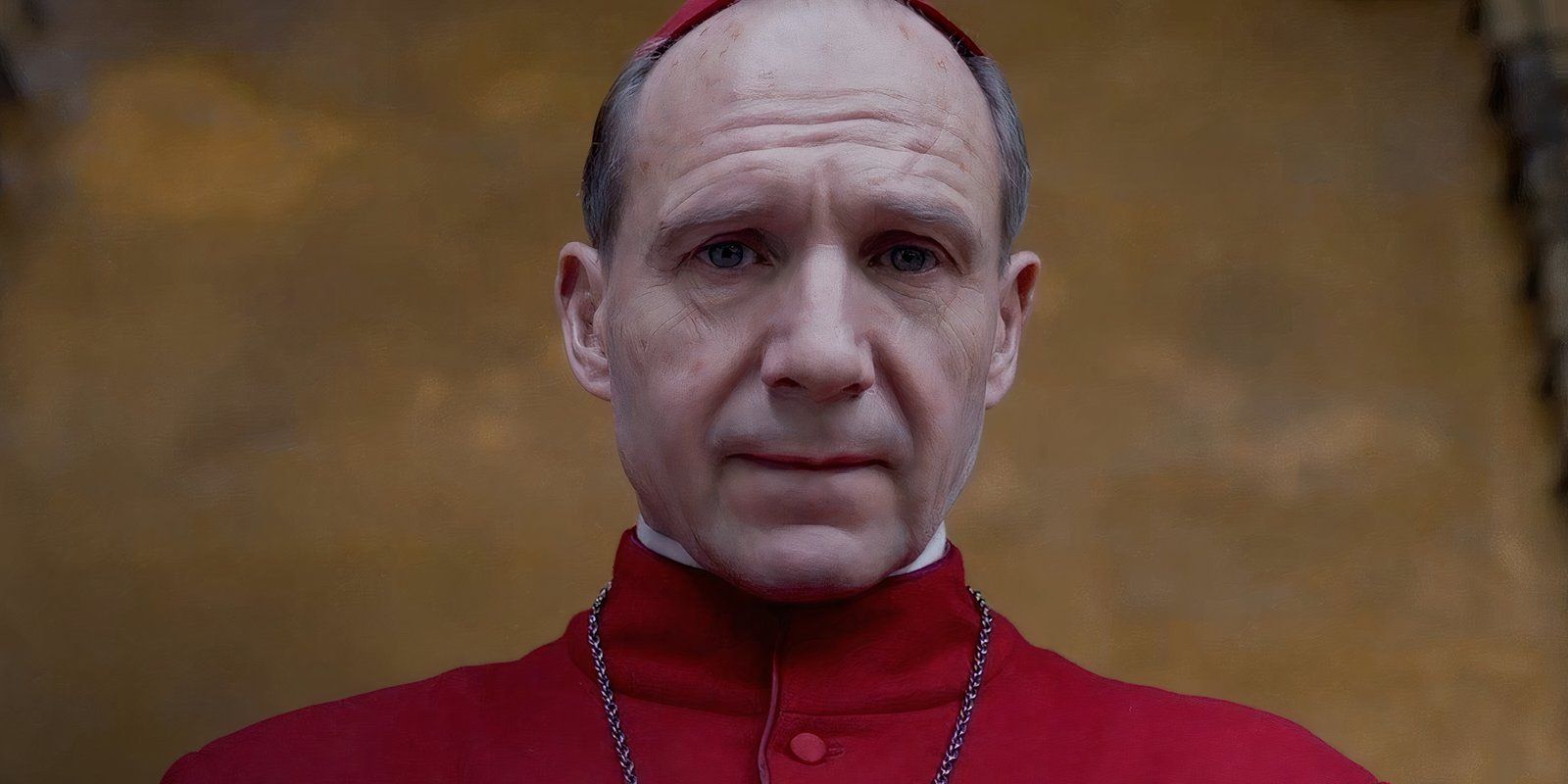
Cardinal Lawrence attempted to manage the conclave with the utmost sense of fairness. It’s why he wasn’t willing to stay quiet when he found out about what Cardinal Tremblay was doing — especially since he wouldn’t admit to it. At the same time, Lawrence wasn’t convinced about being pope, despite Benitez always voting for him. He had his doubts about things, but the fact that he remained relatively neutral throughout, save for his push for Bellini to be pope, also put him in the running.
|
Every Actor In Conclave |
The Character They Play |
|
Ralph Fiennes |
Cardinal Thomas Lawrence |
|
Stanley Tucci |
Cardinal Bellini |
|
John Lithgow |
Cardinal Tremblay |
|
Sergio Castellitto |
Cardinal Tedesco |
|
Isabella Rossellini |
Sister Agnes |
|
Lucian Msamati |
Cardinal Adeyemi |
|
Carlos Diehz |
Cardinal Benitez |
|
Brían F. O'Byrne |
Monsignor Raymond O'Malley |
|
Merab Ninidze |
Cardinal Sabbadin |
|
Thomas Loibl |
Archbishop Mandorff |
|
Jacek Koman |
Archbishop Woźniak |
|
Loris Loddi |
Cardinal Villanueva |
Benitez’s belief in him, and the feeling he had following his speech to the cardinals, began to change his mind about whether or not he could see himself as pope after dismissing the idea so fervently before. With his continued efforts for a just election, always wanting to do what’s best, and after seeing the lengths other cardinals would go to steal the election, Cardinal Lawrence became convinced that he might be a good pick for pope after all. Lawrence goes from being someone who doubts to being a bit more certain the longer Conclave goes on.
Everything The Pope Knew About The Cardinals Before He Died
While the pope dies at the start of Conclave, it’s revealed he knew far more about the cardinals than he let on. The late pope knew that Cardinal Tremblay was bribing other cardinals in a bid to gain their votes. It’s why he asked for Tremblay’s resignation — which never happened because he died shortly after. The pope also knew about Benitez, and appointed him a cardinal “in pectore” right before he died, which was unbeknownst to any of the other cardinals until Benitez showed up just ahead of the conclave’s start. Certainly, the pope knew a lot he hadn’t revealed.
What Conclave Changes From The Book
The Film Stays Loyal To The Book
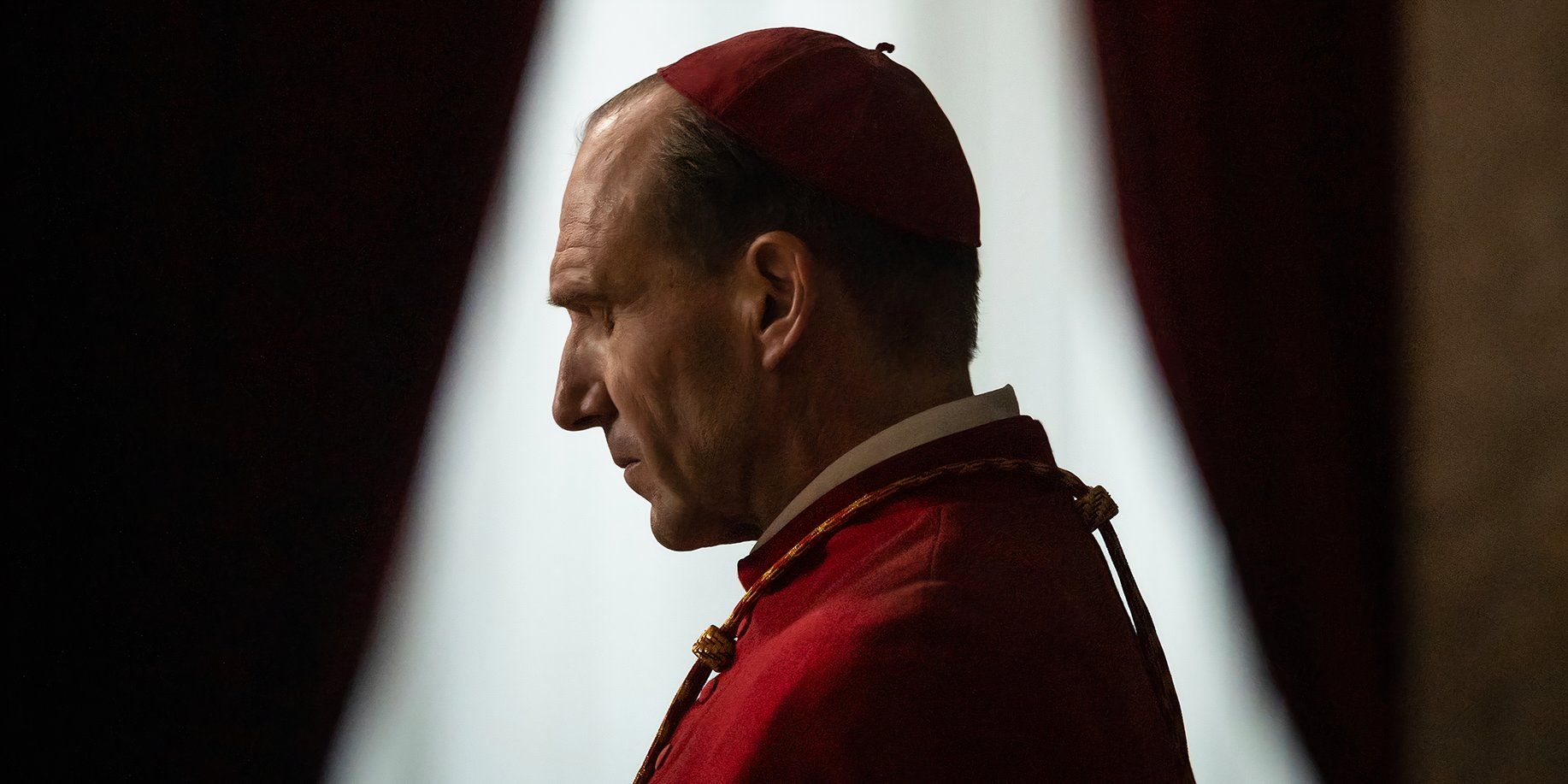
One of the biggest changes comes with Cardinal Lawrence’s name. In the novel, he is Cardinal Lomeli, but since Ralph Fiennes plays the role in Conclave, and he’s not Italian, it’s possible the surname is changed to reflect that. What’s more, a nun's arrival from Nigeria puts Cardinal Adeyemi on the spot. She’s someone from his past, though it’s revealed Cardinal Tremblay requested the nun’s transfer to the Vatican to ruffle Adeyemi’s feathers and prevent him from winning. The nun is present in the book as well, but the events surrounding this subplot play out just a tad differently.
Robert Harris' book was released in 2016 and became a best-selling novel.
Otherwise, Conclave is a fairly loyal adaptation of Harris’ book. From Cardinal Tremblay’s blackmail to Cardinal Lawrence’s inner exploration of his own ambitions and Cardinal Benitez’s surprise twist at the end, Berger’s movie adaptation sticks the landing in terms of the story and its details. There are plenty of adaptations that make drastic changes or leave a lot of things out, but Conclave, like Cardinals Lawrence and Benitez, is faithful.
In the same interview he gave about Benitez's secret, papal expert David Gibson offered his own thoughts on the differences between Conclave and the book its based on:
I liked the movie! It struck me as much better than the book, which I read when it came out several years ago. The novel’s dynamics were all rather one-dimensionally political, and the big twist at the end — which is of course quite absurd — dominated the plot. In the film, the human dynamics of these holy and flawed characters really came out, and the ending was almost superfluous.
That said, I have to stipulate that all conclaves are, by their nature, absurd. I mean, 120 — more or less — scarlet-robed guys go into the Sistine Chapel and are locked away until one of them emerges as the pope, after secret ballots and Latin oaths and white smoke funnelled through a farmhouse chimney. There’s a reason why novelists and filmmakers love ‘Pope Fiction’ as I call it — it has built-in drama and is really a tribute not only to the fascination the papacy attracts but also its power.
The Real Meaning Of Conclave
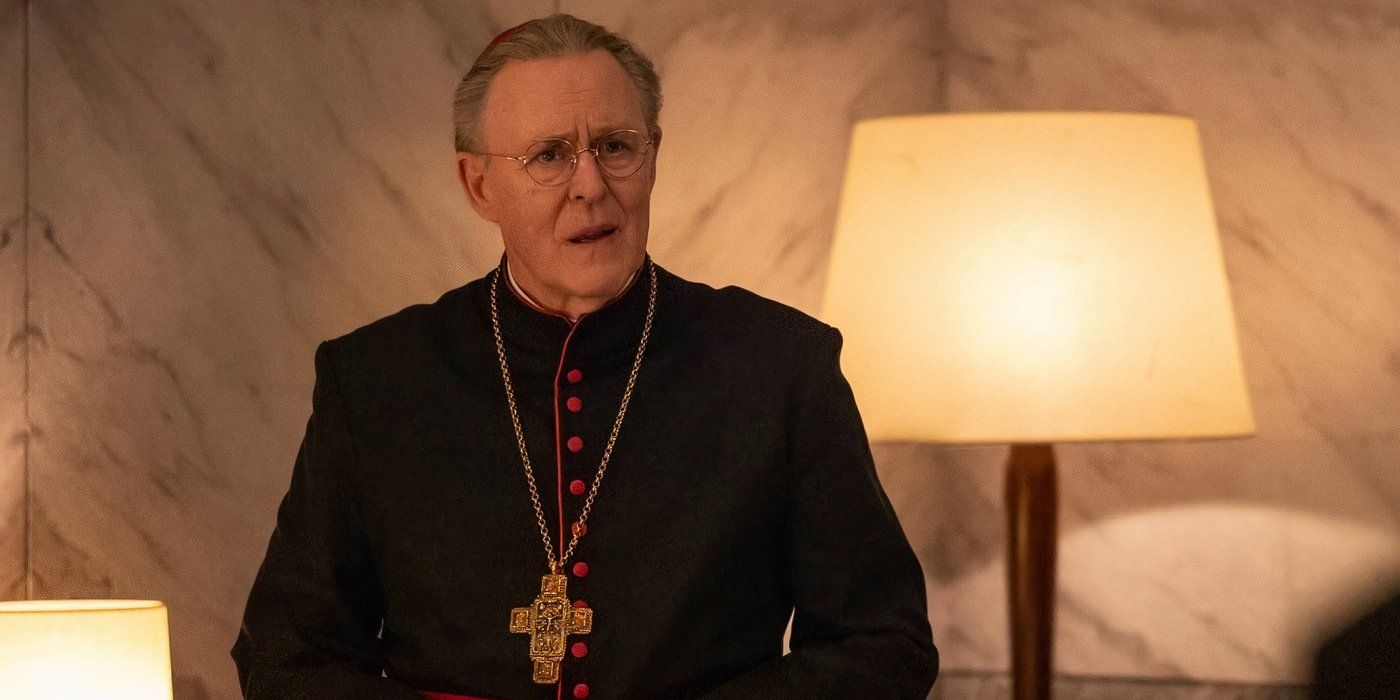
Conclave is very much about traditions, change, and the intersection of the two. With its focus on the conclave, the film underscores the customs of the Catholic Church that have been brought forward to the present, while the characters — Cardinals Lawrence, Benitez, and Bellini, namely — question and mull over the way forward and the changes the Catholic Church must essentially make to survive in an ever-evolving world. It’s also about the inner turmoil and unsettledness of the cardinals, who all come with different views, and how they can be a united front for their parishioners.
Conclave sees them at a crossroads. Being sequestered from others is a physical manifestation of their not being too involved in the world around them. Some of the cardinals’ political scheming is more about winning than about wanting to help. The characters question their role, and Lawrence is especially doubtful, wanting someone as pope who isn’t certain about things, as that makes one more willing to change and bridge a path forward rather than remaining rigidly stuck in the ways of the past. Benitez's secret is perhaps the best and most unexpected way to bring the Catholic Church forward completely.
Conclave's final message is one of hope, as perfectly summed up in its final shot of the nun's laughter. The film focuses on a pathway of acceptance, despite difference, and inclusivity, in stark contrast to the immovable beliefs of the other candidates, and the terrorist attack that threatens to derail the entire election. Benitez's reign comes at a time of great division, and his victory almost proclaims him an almost messianic figure, committed to their beliefs and fundamentally compassionate. Interestingly, of course, this new Pope also comes with secrets, and Lawrence willingly accepts his position in that web of deceit for the greater good.
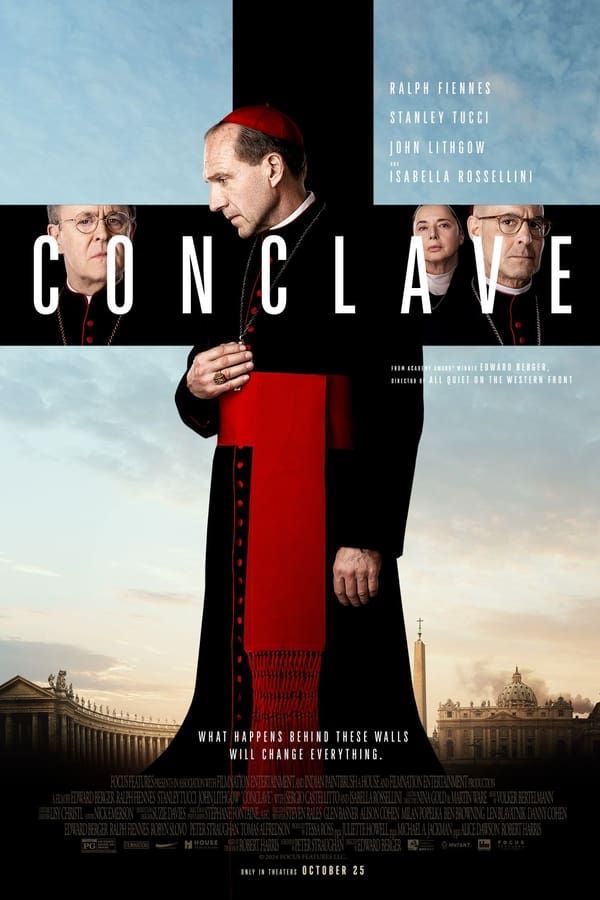
Your changes have been saved
Cardinal Lawrence leads the secretive papal election at the Vatican, where he uncovers a conspiracy and a secret that could destabilize the Church's foundation as leaders gather from around the world.
Director Edward Berger
Release Date October 25, 2024
Writers Peter Straughan , Robert Harris
Character(s) Cardinal Lawrence , Cardinal Bellini , Cardinal Tremblay , Sister Agnes , Cardinal Adeyemi , Cardinal Benitez , Cardinal Tedesco , Archbishop Wozniak , Cardinal Mendoza , Nakitanda
Runtime 120 Minutes

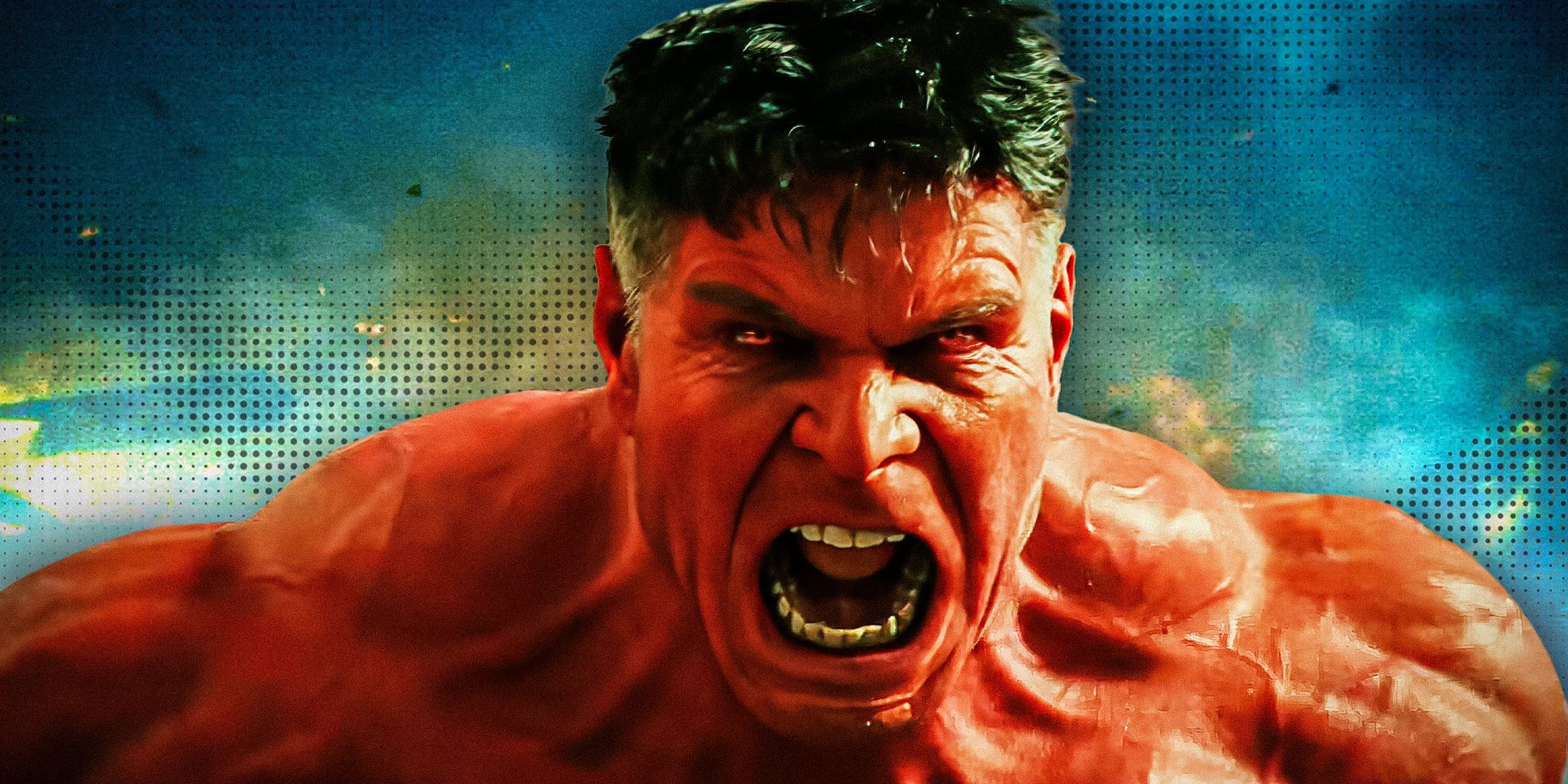
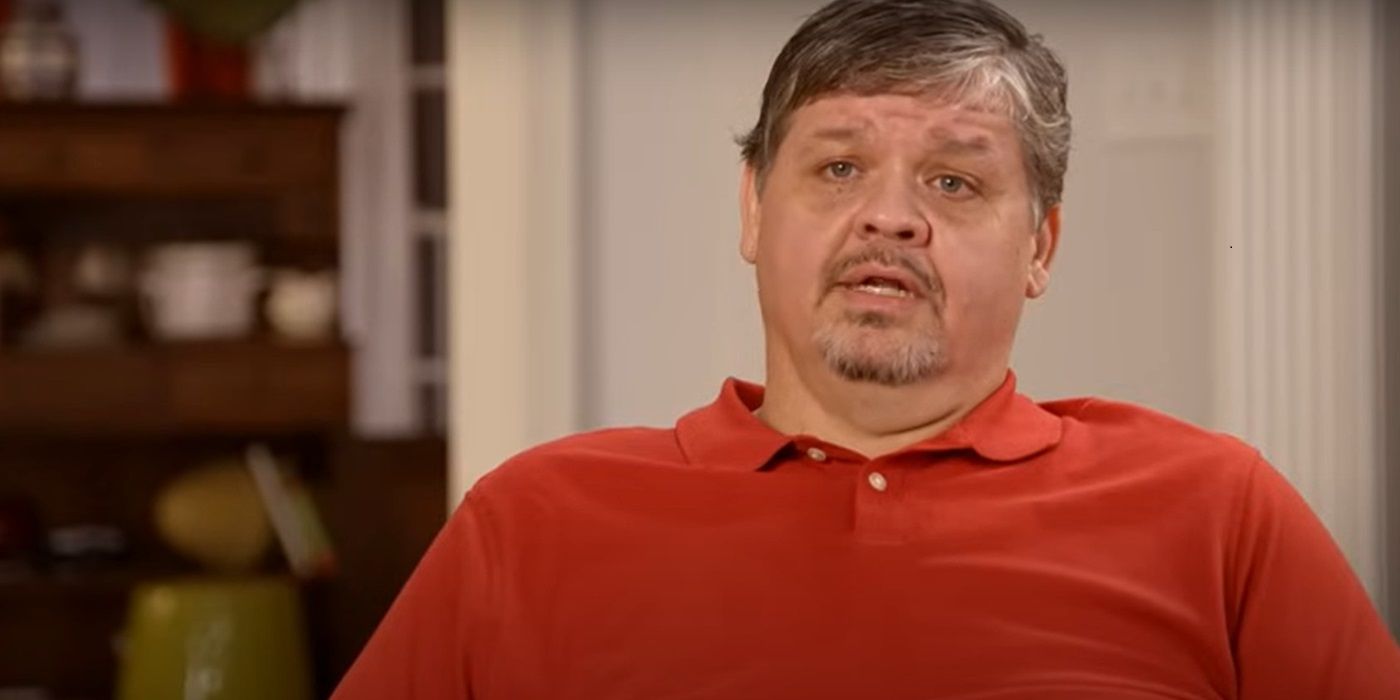





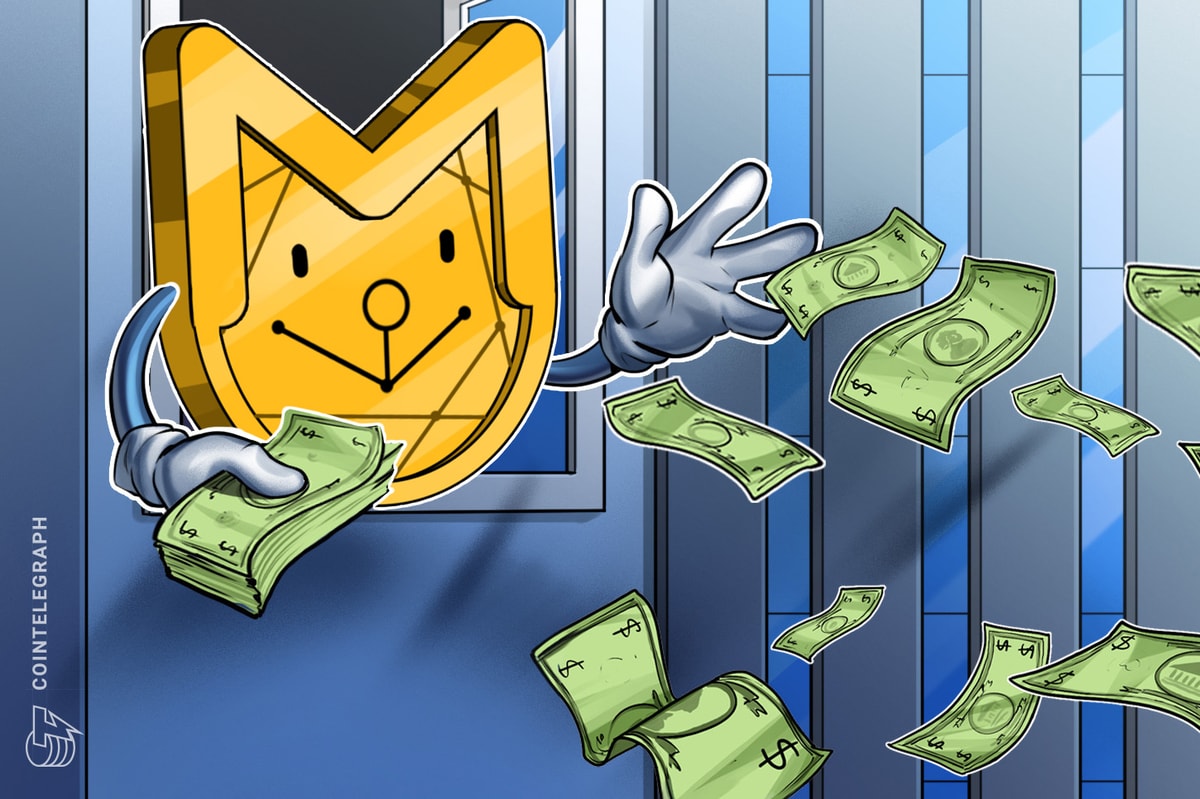
 English (US) ·
English (US) ·